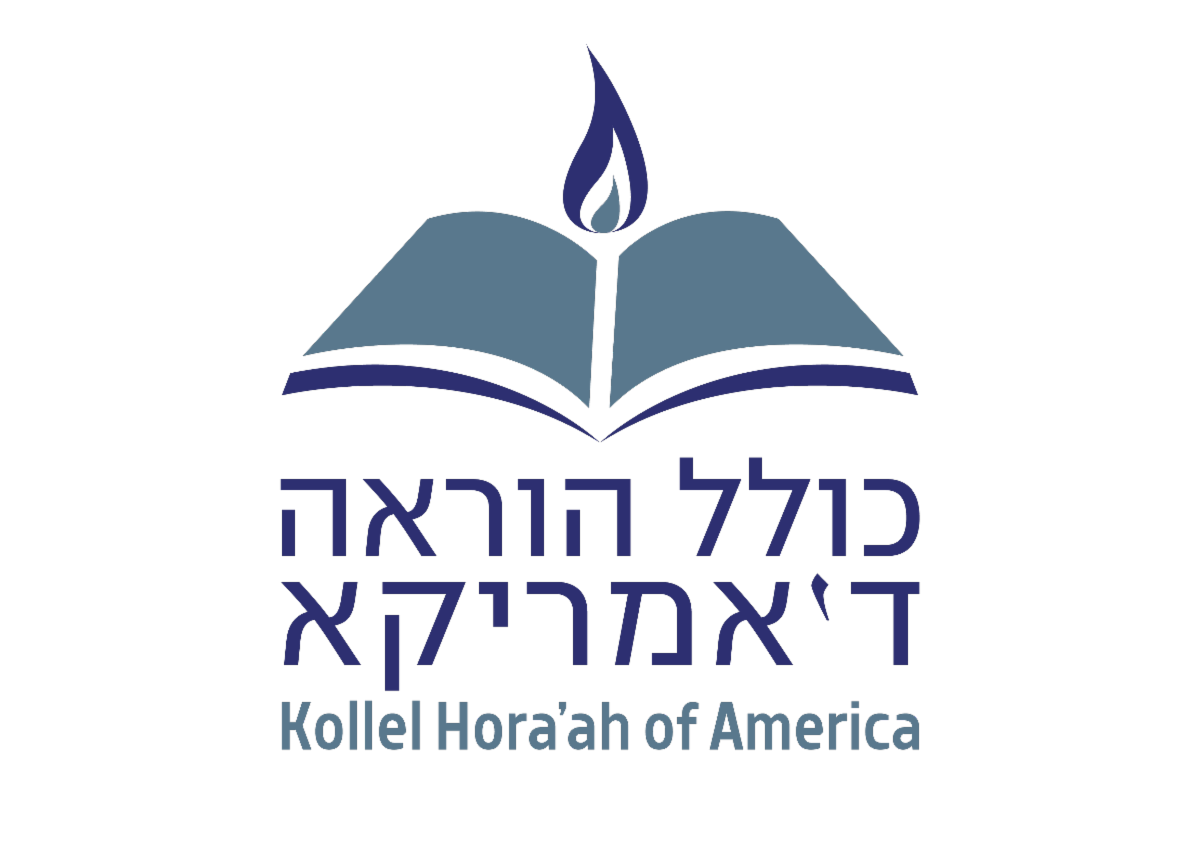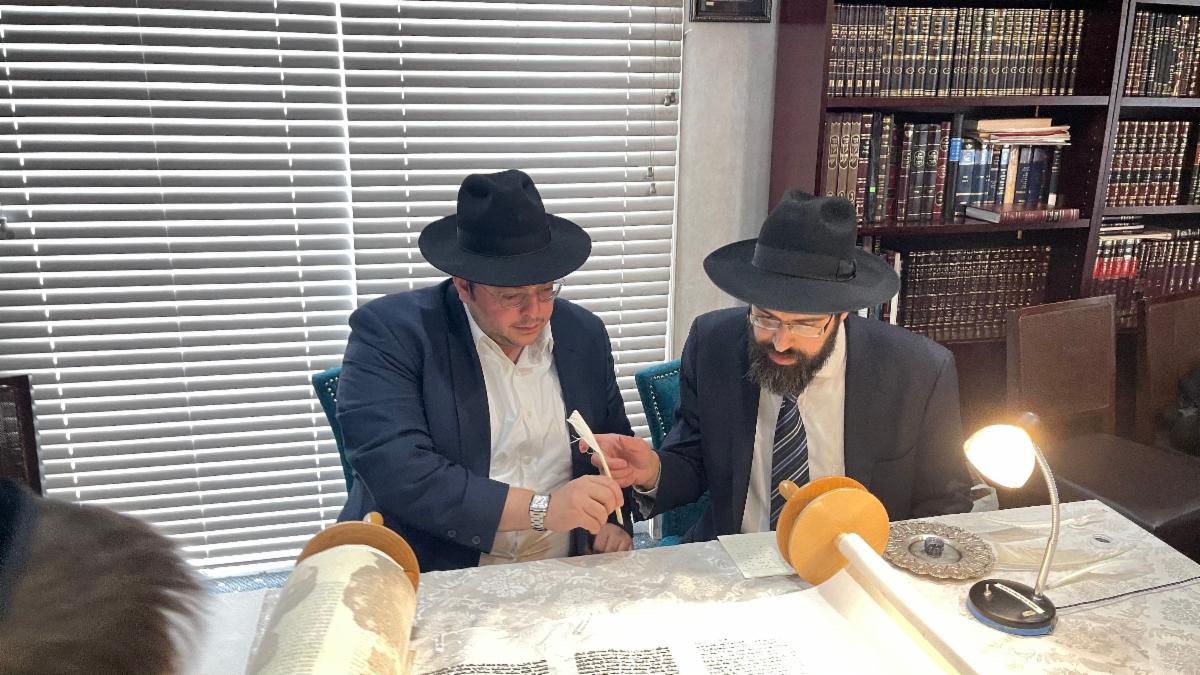Divrei Torah of lasting value that require some thought. Established Ellul 5766/September 2006
Chicago Chesed Fund
Tuesday, February 21, 2023
Predicting the Ketz — Malbim’s Bold Eschatology Based on Daniel 12
Wednesday, February 15, 2023
Vayeitzei, Breishis 8:11. Yaakov’s Stone Pillow, Ma’alin Bakodesh, Agada and Halacha
(This is an improved version of a short post published in '07.)
See Magen Avraham 8:6, who brings from the Shelah that you should have an atarah (something that indicates where the top is, not a bullfighter's traje de luces) on a tallis so the part that goes on the head will not be mistakenly switched to the other side, based on the rule that maalin bakodesh v’lo moridin; just as we find that the krashim of the Mishkan were marked so the kerashim of the north side, which has greater kedusha, should not be switched to south. So, too, the part that goes on your head has a greater chashivus than the part that hangs on the bottom.
The Magen Avraham, however, holds like the Ari zal, that there is no such kpeida, and you can turn the tallis any way you want. See also the Magen Avraham in Siman 42, who says that it is asur to reverse the retzu’ah shel yad so the part that had the kesher is now on the fingers, because ein moridin.
(Obviously, retzu'os are not kedusha atzma, despite the Gemara in Shabbas 62a, because, as Tosfos says there and in Menachos 35b, with proof from Megilla 26b. Also the Rambam calls the letters in the retzu'os just keshorim in the form of letters, and not real kisvei kodesh, as the Griz says on the Rambam. And even Rashi that calls them 'osiyos' just means that they have the form of osiyos, not real kisvei kodesh. As the Rogotchover says in his Tzofnas Pa'anei'ach, the Gemora in Eiruvin 97b says that one who makes letter keshorim on shabbos is only chayov for kosheir and not for koseiv. [A rayoh one can ding zach on, by the way.] So the point is that retzu'os are not kisvei kodesh/kedusha atzma. But also obviously, there's a difference between the retzu'os, about which it says (Shabbos 28b) "lo huchsheru limleches shomayim eloh ohr beheima tehora, and the beged of a tallis. Also obviously, there's a difference between a tzuras ohs on a retzu'ah and the beged of a tallis. So its not surprising that the MA is makpid on ein moridin in the case of retzu'os.)
The Shaarei Tshuvah there brings that the grandfather of the Eliya Rabba brought a rayah from our parshah against the Shelah, and even against the Magen Avraham’s chumroh by the Retzu’ah. Chazal say that when Yaakov took some stones to place under his head, the stones fought among themselves for the merit of being the pillow of the tzadik. To settle their well-meaning dispute, Hashem made turned the many stones into one stone. We see, he says, that the stones only fought when it was a question of one or the other being directly under Yaakov's head. But once they became one stone, there was no longer an issue of what part of the stone Yaakov lied on, because it doesn’t matter. Within an object itself, there is no din of ein moridin.
Here you have the ER bringing his grandfather's opinion that you can bring a raya, and the Shaarei Teshuva that absolutely rejects the idea of bringing a raya from agada.
However, the argument can be made that this agada about Yaakov's stone pillow is a valid rayah, because nobody takes the story about arguments among stones literally, so it must be meant homiletically. Homiletical devices must be crafted so as to square with the halachah. On the other hand, it could be that the agadeta was stated by a tanna whose opinion has no standing in halachah l’maiseh, and was kept only for its mussar or message value– that inanimate nature itself strives to serve a tzadik. Accepting a psak is different than accepting a drush. Psak has to be consistent with other psakim and emes l’amito. Drush just needs a message that is true for some people in some circumstances. It’s like the difference betweeen halacha and halacha l’maiseh.
Beshalach: Was Yael Jewish?
There are no chidushim here, it's just a public service with marei mekomos.
There are so many rayos that Yael was Jewish, primarily from Nazir 23b which compares her to the Imahos and which says that she was so supremely holy that acts that under the laws of nature are physically pleasurable were repulsive to her.
Additionally, Rashi Shoftim 5:6 says that Yael ultimately was a Shofetess, like Devora, Rashi's source is the Rus Rabba in the beginning that lists Yael among the shoftos es Yisrael. Also, Tosfos Yoma 82a-b asks that Yael should have been moser nefesh because gilui arayos is yeihareig.
דלא מיתהניא מעבירה שהטיל בה זוהמא כדמשני גבי יעל בפרק רביעי דנזיר (דף כג:) ובפרק מצות חליצה (יבמות דף קג:) כי פריך והא קמתהניא מעבירה ומפרש כך וכיון דמיתהניא היה לה ליהרג משום גילוי עריות ומשני טובתן של רשעים רעה היא אצל צדיקים ולא
Thursday, January 19, 2023
Losing Kehuna
Tuesday, December 20, 2022
An Excellent Find on the Bracha of LeTorah, LeChupah, UleMaasim Tovim
The Gemara in Shabbos 137b says about the Bris
הָעוֹמְדִים אוֹמְרִים: ״כְּשֵׁם שֶׁנִּכְנַס לַבְּרִית, כָּךְ יִכָּנֵס לְתוֹרָה לְחוּפָּה וּלְמַעֲשִׂים טוֹבִים״
I came across this excellent find and contacted the author. He told me that he has not found anyone else that noticed it.
I do not know if the correlation is the source of the expression or coincidental, and I do not think it matters.
לתורה, לחופה ולמעשים טובים
מאת: אראל סגל הלוי
ללא הסמכה לפסיקת הלכה, לא עצבני, לא עיתונאי
כשנולד ילד, נוהגים לברך את הוריו "שתזכו לגדלו לתורה, לחופה ולמעשים טובים". מדוע דווקא שלוש ברכות אלו?
בספר משלי יש שלושה פסוקים עם הביטוי "הפיק רצון מה'":
משלי ח:לה: "כִּי מֹצְאִי [מָצָא] חַיִּים, וַיָּפֶק רָצוֹן מה'" [קרי]- הדוברת בפרק זה היא החכמה, והיא אומרת "מי שחיפש ומצא אותי (כלומר, התאמץ ומצא חכמה) מפיק רצון מה'".
משלי יב:ב: "טוֹב יָפִיק רָצוֹן מה', וְאִישׁ מְזִמּוֹת יַרְשִׁיעַ" - איש טוב, העושה מעשים טובים, מפיק רצון מה', ואיש שזומם לעשות מעשים רעים גורם לה' להרשיע את העולם (פירוט).
משלי יח:כב: "מָצָא אִשָּׁה מָצָא טוֹב, וַיָּפֶק רָצוֹן מה'" - איש שמצא את האישה שחיפש, מצא דבר טוב - מצא את החצי השני שמשלים אותו, והוא מפיק רצון מה', שהרי ה' אמר "לא טוב היות האדם לבדו" (פירוט).
שלושת הפסוקים מתאימים בדיוק לשלושת חלקי הברכה: תורה (= חכמה), מעשים טובים (= טוב), וחופה (= מצא אשה)!
אם כך, משמעות הברכה היא, שהילד החדש יזכה לשלושת הדברים שיעזרו לו להפיק רצון מה'.
from http://tora.us.fm/tnk1/ktuv/mjly/hfiq_rcon_m1.html
the sefer is online at http://tora.us.fm/tnk1/ktuv/mjly/sgulot.html
Note that the Gaon in Mishlei supports the connection of these pesukim to torah, chupah, and Maasim tovim.
On 'כי מצאי (מצאי) [מצא] חיים ויפק רצון מה the Gaon says כי מצאי מצא חיים היא התורה
On 'טוב יפיק רצון מה he says
טוב יפיק רצון מה' כי המצות הם רצון ה' ורצונו של הקב"ה ,וע"י המצות שהם רצון ה' מקבלין גם את רצונו שהוא להטיב .לכן המצות נקראים טוב וזהו טוב מי שהוא צדיק ועושה מצות ה' ומעשים טובים, הוא יפיק רצון מה', כמ"ש בטל רצונך מפני רצונו כדי כו'
and of course 'מצא אשה מצא טוב ויפק רצון מה speaks for itself.
Side comments:
1. The Bris Milah, as רבנו בחיי says, is akin to a קרבן.
בראשית י"ז:י"ג
וע"ד המדרש מצות מילה היא כענין קרבן, וכשם שדם הקרבן לכפרה על המזבח כך דם המילה מכפר, ועל כן מצותה ביום השמיני, כי הקרבן לא יכשר עד יום ח', שנאמר (ויקרא כ״ב:כ״ז) ומיום השמיני והלאה ירצה, וכשם שכתוב בקרבן (שמות כ״ט:ל״ג) ואכלו אותם אשר כפר בהם, שאכילת הקרבן לכפרה כך ישראל עושין סעודה ביום המילה. ועוד גדול כחה יותר מן הקרבן, שהקרבן בממונו והמילה בגופו, באבר שכל גידי האברים נקשרים בו, אשר מטעם זה נקרא ראש הגויה, כלומר ראש כל הגוף, ועל כן חשוב לו לעקדה וזבח כאלו עקד את עצמו וכתיב (תהילים נ׳:ה׳) כורתי בריתי עלי זבח.
By קרבנות, one of the essential elements is seeking ריצוי, such as 'לרצון להם לפני ה. Since the bris is akin to a Korban, and the ikker of a korban is Ritzui, מיום השמיני והלאה ירצה, we ask that we are zocheh to all the things that are 'מפיק רצון מה.
Or, from a slightly different perspective: Since the bris is like a korban, and we hope it will bring Ritzui, we ask that Hashem give the child ritzui that will help him to be zocheh to Torah, chupah, and maasim tovim. Not the pshat that we ask for things that bring ratzon, we ask for things that are the result of Ratzon. Could be both sides are true. But I like this approach - the Ritzui of the Bris should lead to Ritzui that is connected to the three brachos.
2. More generally, we see the רצון שכני סנה and ומשביע לכל חי רצון. Rashi there - כדי פרנסתו הוא משביע את טובו ואת רצונו ואת ברכתו. Malbim - פותח את ידך, שהוא מ"ש תפתח ידך ישבעון טוב, ושיעור הכתוב הרצון פותח את ידך ומשביע לכל חי, מציין את הרצון כעצם מופשט, שהרצון הוא הפותח את ידי ה', שע"י הרצון יפתח ידיהם לתת ולהשפיע בידים פתוחות מלאות טוב, ואז ישביע לכל חי בשביעה יתירה, וזה יהיה בעת רצון שאז הרצון גורם פתיחת הידים ברב טוב ובשביעה:
Saturday, December 17, 2022
A Yesod from Harav Moshe Tendler
Rabbi Tendler once said that the Torah does not present caricatures of villains. If you see someone as a rasha gamur, you are missing the lesson the Torah is teaching. In every rasha in the Torah there is gadlus and a fatal flaw, a moment of great potential and the destruction of that potential. Very often that lost opportunity is hinted at by showing a similarity to a truly great person. Until you see the similarities, pointing at the wickedness will teach you very little.
In Parshas Vayeishev, one person is indeed portrayed as a villain, but her villainy is given nuance by showing what she had in common with her antithesis, a woman of legendary righteousness.
Medrashim (87:9) and Onkelos (40:15, see Artscroll Onkelos note 19) make is clear, and it is really obvious from the story itself, that Potiphar did not believe his wife. You realize that Potiphar was a powerful man in ancient Egypt, and when his wife said that their disgusting Hebrew slave raped her, the natural result should have been that Potiphar would have Yosef tortured and killed on the spot. But he did not. He consigned him to Otisville, where he was immediately appointed as head trustee. Potiphar only imprisoned him to quiet his wife.
Potiphar did not believe his wife because she was a Zonah, and her tearful description of being defiled by a lecherous Yosef was ludicrous. The wife of Potiphar was a zonah pretending to be a chaste woman, who falsely accused an innocent man and tried to have him killed.
Then you have Tamar. Tamar was a chaste woman, a tzadeikes, who pretended to be a zonah, and she was willing to die to prevent Yehuda, who was not innocent, from suffering public humiliation. (Thank you Rabbi Milt Wakschlag for pointing this out.)
Now that we see the stark contrast, the question is, what is the point the Torah is making with this contrast. I think the answer is, based on the Medrash on 38:1 in chapter 85:2.
ויהי בעת ההוא, ולא היה צריך קריה למימר אלא (בראשית לט, א): ויוסף הורד מצרימה, ומפני מה הסמיך פרשה זו לזו, רבי אלעזר ורבי יוחנן, רבי אלעזר אמר כדי לסמך ירידה לירידה. רבי יוחנן אמר כדי לסמך הכר להכר. רבי שמואל בר נחמן אמר כדי לסמך מעשה תמר למעשה אשתו של פוטיפר, מה זו לשם שמים אף זו לשם שמים, דאמר רבי יהושע בן לוי רואה היתה באסטרולוגין שלה שהיא עתידה להעמיד ממנו בן, ולא היתה יודעת אם ממנה אם מבתה
Chazal tell us that both Tamar and lehavdil the wife of Potiphar were miskavein l'sheim shamayim. Each of them saw that they, or someone close to them, would join this man in being the progenitor of Malchus and Mashiach. Both of them were motivated by that vision. But, evidently, kavana l'sheim shamayim is not enough. If the person himself is flawed, the actions will be znus and retzicha. As my mother in law, Rebbitzen Sheila Feinstein, used to say, when people say they're doing something l'sheim shamayim, check whether their Hebrew name is Shamayim.
I am not sure if this is a tzushtell, but this does sound somewhat reminiscent of the vort said in the name of the Divrei Chaim. It's mipi hashmu'ah, so there are different versions; here's the way I heard it, followed by two other versions.
How can Chazal say that the 'Ish' that wrestled with Yaakov was the Sar shel Eisav, and the 'Ish' that found Yosef and told him where he could find his brothers was the Malach Gavriel. How do Chazal know? They are both simply described as 'Ish.' Reb Chaim Tzanzer answered that when you see a man that looks like a malach, there is a very simple way to know for sure. If he approaches you and asks you what you need, then he is indeed a malach. If you ask him for a bracha, and he says "I can't, I'm in a hurry to daven mincha," then he is the Sar shel Eisav.
In some sense, the Sar shel Eisav is also "l'sheim shamayim niskavein." But that alone is not enough. He is still the Sar shel Eisav.
ויאבק איש עמו עד עלות השחר (לב, כה)
מי הוא אותו “איש”? כותב רש”י על פי חז”ל – “זהו שרו של עשו”.
גם בפרשת וישב, מספרת התורה סיפור שמעורב בו “איש” – “וימצאהו איש, והנה תועה בשדה, וישאלהו האיש לאמור, מה תבקש” (פרק לז, טו – האיש פוגש את יוסף משוטט בשדה לחפש את אחיו, והוא פונה אליו להציע את עזרתו). והנה, שם, ב”איש” זה של פרשת וישב, פירש רש”י שאותו “איש” הוא המלאך גבריאל. נמצא שה”איש” נדרש בסיפור אחד כשרו של עשיו, ובסיפור אחר כמלאך גבריאל.
בהקשר זה ישנו סיפור ידוע על הגאון רבי חיים מצאנז, בעל ה”דברי חיים”: פעם ביקש ה”דברי חיים” מתלמיד חכם אחד לסייע לו במאמציו לסייע לעני חסר כול ולאסוף כסף עבורו. אותו תלמיד חכם, סירב והסביר שהוא עסוק בתלמוד תורה ובהעברת שיעורים וכיוצא בזה ואין לו פנאי לסיוע זה. אמר לו על כך הגר”ח מצאנז, בזכותך התיישבה לי קושיה: בפרשת וישלח נאמר “ויאבק איש עמו” ומפרש רש”י שהוא שרו של עשיו, ואילו בפרשת וישב, על “וימצאהו איש והנה תועה בשדה וכו'”, מפרש רש”י שהוא המלאך גבריאל; ולכאורה, מניין לרש”י הבדל זה, שה”איש” בפרשת וישלח הוא שרו של עשיו וה”איש” בפרשת וישב הוא המלאך גבריאל? אלא שהדבר נלמד מתוך המעשה עצמו: ה”איש” בפרשת וישב פוגש אדם אחר הזקוק לעזרה, ומיד מפנה מזמנו, מתעניין במצוקתו ומציע לו את עזרתו – “איש” כזה, זהו המלאך גבריאל; אך ה”איש” בפרשת וישלח, כשיעקב זקוק לברכה, הוא משתמט בנימוק שהוא צריך לומר שירה לפני הקב”ה (כמבואר ברש”י שם, ש”שלחני כי עלה השחר” פירושו שצריך אני לומר שירה), ומי שמשתמט מלסייע לזולת בנימוק שהוא עסוק במצווה ובאמירת שירה לקב”ה, “איש” כזה הוא שרו של עשיו… אותו תלמיד חכם הבין את המסר ושינה מדרכו
Here's a Yiddish version, also nice. This one is "if he wrestles with you, then..."
ויאבק איש עמו הוא שרו של עשו (רש"י)
אן ארימאן איז געקומען צו הייליגן "דברי חיים" און זיך באקלאגט אז ער האט שוין א טאכטער אין די יארן, און ער האט גארנישט אויף חתונה הוצאות. האט אים דער צאנזער רב געשיקט צו א געוויסן גביר פון זיינע חסידים מיט אן המלצה בריוו אין וועלכן ער בעט אים צו געבן דעם איד א גרויסן סכום געלט. ווען דער גביר האט געליינט דעם בריוו און געזען די סומע וואס דער צאנזער רב פארלאנגט פון אים, האט ער זיך גענומען דינגען און גע'טענה'ט: דאס איז צו א גרויסער סכום, אפשר איז גענוג אביסל ווייניגער? דער ארימאן האט בשום אופן נישט געוואלט און אום געזאגט: דער הייליגער רב הייסט געבן דעם דאזיגן סכום. זיי האבן זיך געקריגט א שטיק צייט, און דער ארימאן איז אוועק מיט גארנישט. ווען ער איז צוריק געקומען קיין צאנז און עס דערציילט דעם דברי חיים, האט ער אים געגעבן אן אנדערן בריוו צו א צווייטן גביר אין אן אנדערע שטאט, און ווען יענער האט געליינט וואס דער צאנזער רב שרייבט אים, האט ער אים תיבף געגעבן דעם געפאדערטן סכום.
ווען דער ערשטער חסיד איז שפעטער געקומען צו פארן קיין צאנז האט אים דער הייליגער דברי חיים געפרעגט: פארוואס אין פרשת וישלח אויפן פסוק "ויאבק איש עמו" זאגט רש"י: "הוא שרו של עשו". און אין פרשת וישב אויפן פסוק "וימצאהו איש" זאגט רש"י: "זה גבריאל". ביי ביידע שטייט דאך נאר דאס ווארט "איש"
נאר האט אים דער דברי חיים אויסגעפירט אויב אן ארימאן קלאפט אין טיר און בעט מען זאל אים ארויסהעלפן, און יענער הייבט זיך אן צו ראנגלען און זיך מתווכח זיין און וויל נישט ארויסהעלפן, דער קען זיכער נאר זיין "שרו של עשו". אבער אויב דער גביר פרעגט: "מה תבקש", און העלפט אים ארויס, דער קען שוין זיין מלאך גבריאל.
(מושיען של ישראל)
Wednesday, November 16, 2022
KHA Charidy campaign
|



